We kindly inform you that, as long as the subject affiliation of our 300.000+ articles is in progress, you might get unsufficient or no results on your third level or second level search. In this case, please broaden your search criteria.
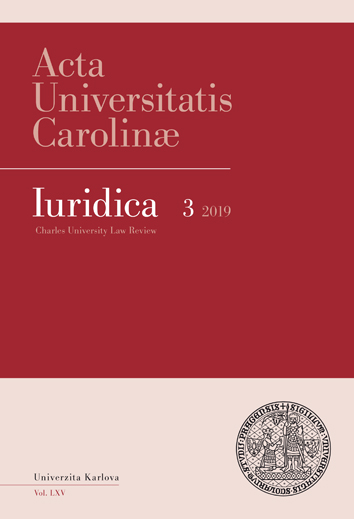
The paper deals with legislative changes related to the process of permitting various building projects. Their goal in the present legislation as well as in the upcoming legislation is to simplify and speed up proceedings of permitting building projects. The author focuses on the legislation parts that affect the scope and powers of environmental protection authorities, especially the nature conservation authorities. The aim of the paper is to point out the controversial laws and the laws that are being prepared with regard to the scope of authorities in the field of nature protection for the building permit process and to carry out their critical analysis.
More...
Considering current reports of dramatic biodiversity loss worldwide, this article provides a brief examination of legal aspects related to an issue that belongs to the most significant causes of this adverse trend – habitat fragmentation. For practical reasons, it only deals with fragmentation caused by construction of roads. Since Czech legislation does not contain any provision dealing specifically with this issue, a combination of provisions that are more generally formulated must be used. Therefore, the article focuses especially on identification of the key legal instruments which are applicable in this context, and on a brief presentation of specific procedures designed in methodological documents dealing specifically with the issue of habitat fragmentation in the Czech Republic. The problems in question are also shortly confronted with current trends in Czech construction law.
More...
The contribution compares the terminology of current and previous Czech and European personal data protection law from the perspective of the use of two possible Czech terms for the personal data breach. Firstly, the pattern of the use of these legal terms is analysed with regard to the relevant legal framework and the difference or overlay of their normative content is assessed. The identified disparities within or between the core laws are assessed on the European level first based on the comparison of the language versions and then also in broader context. The conclusion of the contribution is a structured argumentation in favour of one of the terms.
More...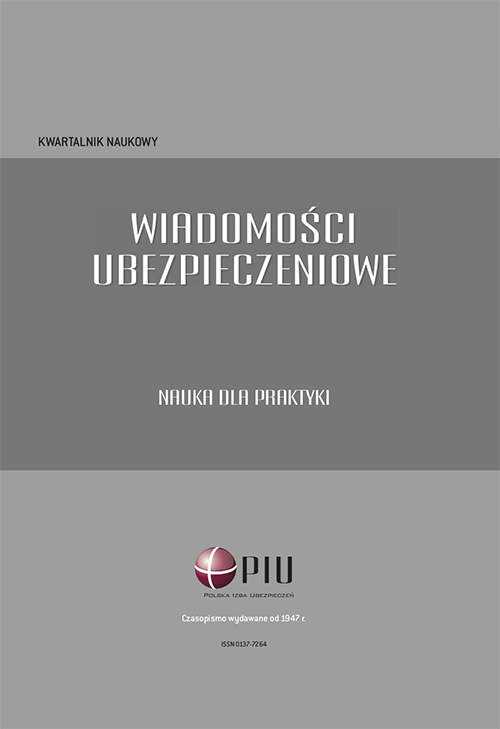
The article analyses civil law ramifications of the failure to timely respond to the client’s complaint under art. 8 of the Law on handling complaints by financial market entities and on the Financial Ombudsman of 2015. According to the law if a client has filed a complaint and a trader has not responded to his re- quests within the prescribed times of 30 or 60 days, the request shall be deemed to be considered justified by the trader. Based on the scholarship related to a similar construct in the law of sales, the author argues that the rule of art. 8 shifts the burden of proof of substantive premises of the cli- ent’s claim to the trader in subsequent court proceedings. The trader hence can contest the validity or the extent of the claim before the court. The question is to be solved by the Supreme Court in the preliminary question procedure.
More...
The issue of the article concerns the application of Article 819 § 1 Civil Code to a redemption claim in the unit-linked life insurance contract. The analysis of the subject was presented in the broader context of the nature of the unit-linked life insurance contract and the life insurance contract. The article characterizes the insurer’s benefits paid under these contracts. The article also discusses the is- sue of the application of unjust enrichment provisions to a claim for payment of a redemption claim.
More...
Performed analysis of the actual state after the fortuitous event determines the legitimacy of the claim and the amount of the benefit. The insurance company pays compensation or benefit based on the claim of the right-holder under the insurance contract. In practice, especially in cases concerning the so-called medical errors, a problem arises, what status and the consequences during the court proceedings will have the insurance company’s recognition of the right-holder’s claim. Here based on the actual state of law, we will determine what legal character such recognition bear and discuss whether it is justifiable. In addition, we will focus on exploration of the material and legal consequences of recognition of the claim (inter alia, interruption of the limitation period, transfer of claims to heirs) and litigation (including the possibility of considering a case in separate proceedings, dissimilarity in evidentiary proceedings).
More...
Group life insurance in Poland, particularly popular on the bancassurance market and workers` programme, very often includes pre-existing medical condictions provision. This means that the insurer does not evaluate the risk based on medical interview (questionnaire), but excludes its liability for an insurance accident caused by an illness existing in the insured party before joining the insurance. The popularity of this type of insurance was not reduced by the fact that pre-existing mediacial conditions provisions were considered abusive by the SOKiK (the court of competition and consumer protection). This article is devoted to the admissibility of including such provisions in general terms of insurance in the light of Polish law and correctness of their legal qualification performed by Polish courts. The problem of relations between arguments involving the nature and specificity of group insurance and the legal regulation regarding the scope of insurance cover in life insurance will also be discussed.
More...
The purpose of this article is to comment the judgement of the Court of Appeal in Katowice dated 26th January 2017, case no. I Aca 760/16. The court held that the insurer of the tortfeasor doctor, should bear the liability for the violation of patients rights ( including the consent to medical treatment and the right to information).Such violation cause the legal duty to pay the compensation for non material damage.
More...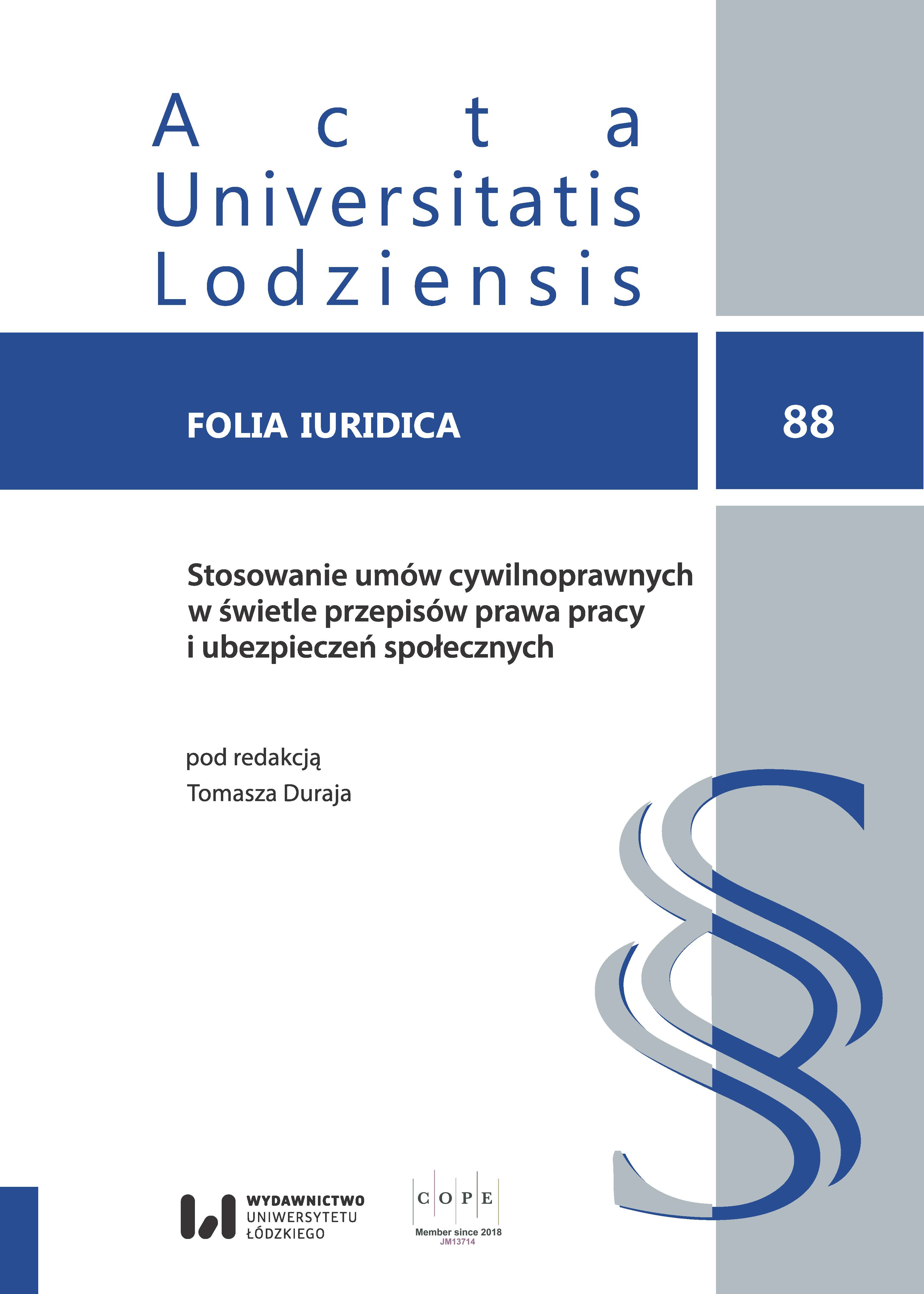
The theme of this article is an attempt to show the future of civil-law employment relations. The author presents the scale and causes of the phenomenon of the spread of civil law forms of employment and self-employment in the market economy, which are increasingly displacing the classic employment relationship. In his opinion, this tendency is permanent and irreversible. In the future, the employment model should be maintained based on the diversity of acceptable employment bases, assuming the freedom of choice of a regime among employment relationship, civil law contracts and self-employment. There is a need to leave the existing employment structure based on the subordinated work criterion under the management of the employer. It is this employment model that must guarantee the widest (fullest) scope of protection, which should compensate the employee for a permanent state of dependence (subordination) on the employer. It is possible to build other civil-law forms of employment around this specific model of employment relationship, to which, to a limited extent, protective labour law provisions should apply. In addition, there is a need to specify in the provisions of the Labour Code the criteria that distinguish the employment relationship from civil law employment relationships, and in particular the employer’s subordination criterion.
More...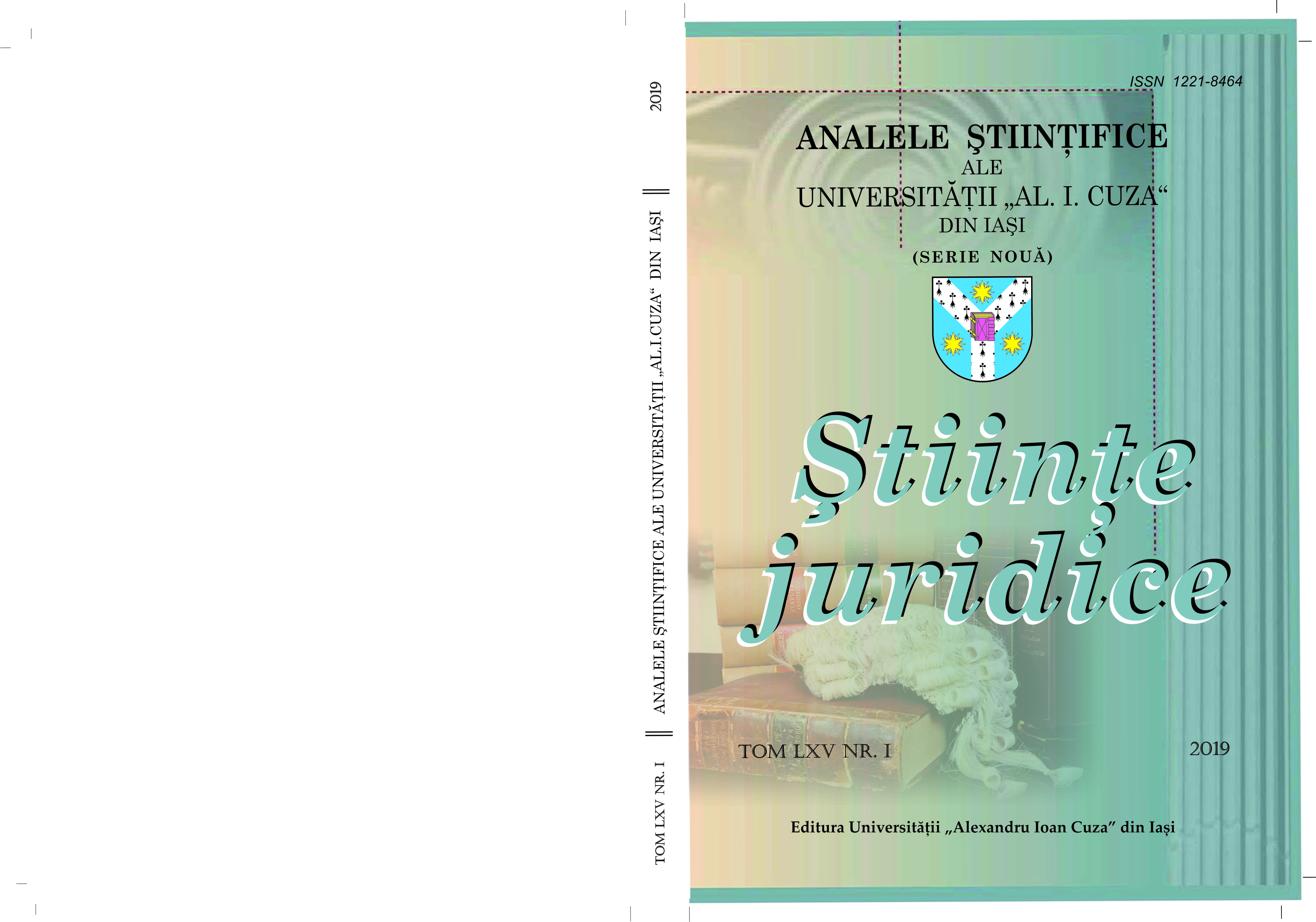
Interpreting legal rules is a difficult process in itself. Translating a legal text automatically involves comparing two systems of law, often different from one another. That is why, most of the times, the translation of a legal text also implies the interpretation of the foreign text by reference to their own legal knowledge. The article aims to provide a brief presentation of the concept of interpretation from a foreign law system, which the Romanian legal-translator can adapt to his/her own system. We will also analyze, among other things, the idea of equity as seen by the Romanian and Spanish doctrine, and we will thus discover the term "epiqueya", considered the fulfillment of equity. Finally, we will translate the legal text that regulates the concept of interpretation and equity in Spanish civil law, which we will analyze in terms of semantics and interpretation, by reference to the process of legal translation.
More...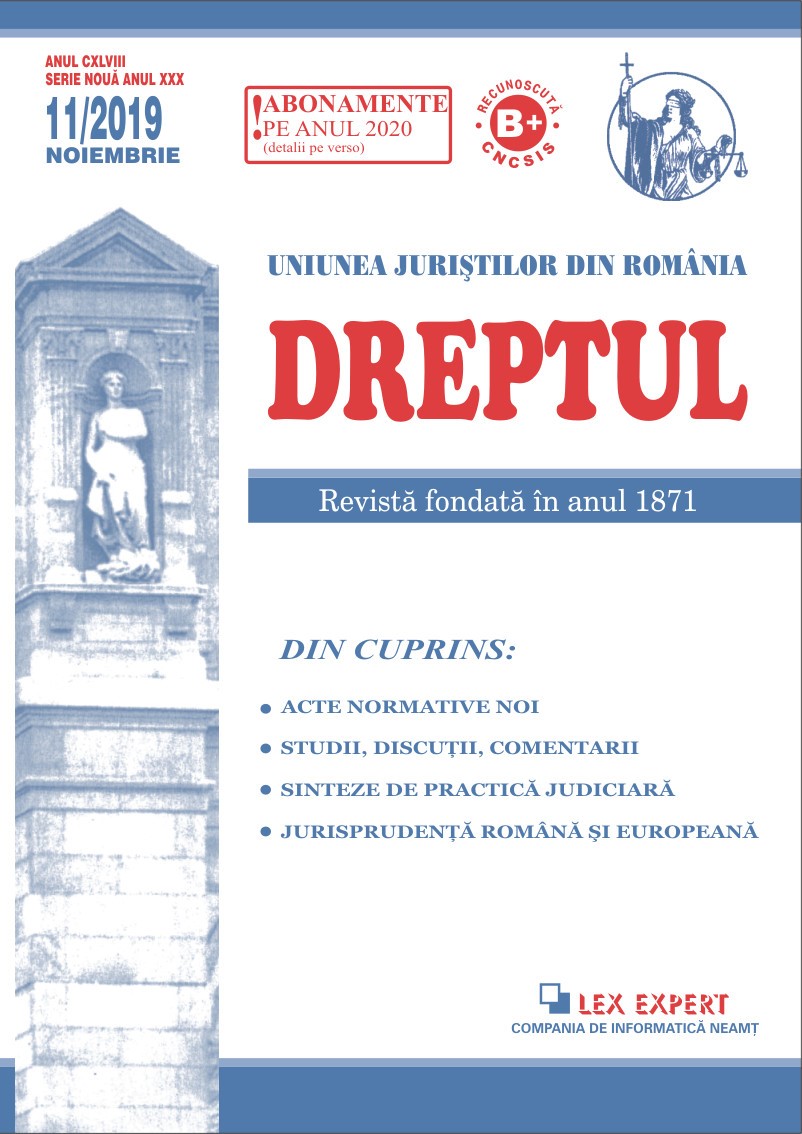
The question of whether criminal liability can be engaged only in the case of the violation of a subjective right or whether it operates also when a simple legitimate interest is violated, without being enshrined as a subjective right, has always preoccupied the doctrine of civil law. The discussions were amplified on the background of the evolution of the law of the criminal civil liability, from a law oriented towards the sanctioning of the guilty perpetrator, to an indemnity law, increasingly inclined towards the interests of the victim who suffers from the unjust harming of his subjective rights, but also of the legitimate interests, those which, without being consecrated, cannot be tolerated by the legal order. The debate has become increasingly animated, in the context of the proliferation of claims that aspire to compensation, under the pressure of unprecedented diversification of human rights and fundamental freedoms, making traditional good morals increasingly relaxed. This explains the tendency of many modern codifications to include them in the broader concept of public order, as a component thereof. Even the French, known for their refusal, sometimes expressed manifestly, to adopt modern solutions, have agreed to reform their Civil Code, through the Ordinance on the reform of the contract law of 10 February 2016, by relating contractual freedom only to public order. The present study intends to critically examine the configuration of the legitimate interest, seen in its double state as a condition of exercising a court action, but also as a prerequisite to repair the prejudice suffered by the victim of the harming of the interest of another, within the criminal liability, according to the legal provision in Article 1359 of the Civil Code. As the new legal provisions prove to be perfectible, the present paper advances also a number of observations, as well as proposals de lege ferenda, with the conviction that their current form requires serious efforts to interpret them, to the detriment of a case law that wants to be unitary, as well as in order to harmonize the current Civil Code with the European orientations evoked in this paper, with a view to building a European law of civil obligations. The fact that the doctrine invoked in this paper is predominantly French has as an explanation the fact that the problems connected with the chosen subject represented an object of analysis of some important civil law works within this legal area, through which a more extensive and more nuanced case law was used on this theme, taken over by the Romanian law in the matter.
More...
The subject of our study is, in essence, the successoral transmission, an institution present in all the works of successions and on which one might think that there are no more aspects with a relatively novelty degree. We are trying to show here, however, some of these aspects, resulting, in addition, that the whole matter of the right of inheritance, although it is a classic segment of the civil law, has, however, unexpected reserves of „freshness”, which urge to the research, which offers new perspectives of approach.
More...
A special category of workers is represented, pursuant to the European and national norms, by the professional maternal assistants.In accordance with Article 1 of the Government Decision No 679/2003, these are natural persons, legally certified, who ensure, through the activity they carry out at their home, the raising, care and education necessary for the harmonious development of the children they receive in placement or in their custody.Although maternal assistants carry out their activity under an individual employment contract (of a special nature), they do not benefit by all the rights in their fullness which the other workers have. Thus, they do not have the right, only restrictively and with permission, to weekly rest, days off or rest leave. This situation is justified by the superior interest of their mission, that of ensuring the raising, care and education of children, their integration without discriminations in the family of the assistants.This is the reason why the European Court of Justice (Grand Chamber) has ruled (in the Romanian Case C-147/17) that the activity of maternal assistant does not fall within the scope of Directive 2003/88.Likewise, the High Court of Cassation and Justice (Appeal in the interest of the law) has ruled (the Decision No 25/2018) on the specificity of this profession and on the right to the annual rest leave of the maternal assistant.
More...
The procedure of registration of forgery is a procedural incident regarding the evidence by written documents, which can usually have as its object an authentic written document or a written document registered under private signature.In the case of authentic written documents, the procedure of forgery may be used when the authenticity of the findings made personally by the person who authenticated the document is contested, according to the law.In the case of the written documents under private signature, the procedure of forgery can be used when it is claimed that they have been fabricated, being admissible also in the assumption that such a document has been recognized by its author or has been verified in court, if it is proved that the recognition was the result of an actually excusable error.The investigation and establishment of forgery shall be carried out by the criminal prosecution bodies and criminal examination body or by the civil court, by incidental way, in the event that the criminal action cannot be initiated or cannot continue.The procedure of registration of forgery is applicable regardless of the nature of the forgery (material or intellectual) and false written document is also the one whose content is not real, even if there has not been committed by the operation of altering the reality.The provisions of Articles 304-308 of the Civil Procedure Code regulate the procedure applicable in the assumption of registration of forgery against a written document produced in a pending litigation, in which case the provisions of Article 315, of Article 5491 and of Article 580 of the Criminal Procedure Code must be complied with.The investigation of the forgery by the civil court, by incidental way, can be done in the cases expressly and limitatively provided by Article 308 of the Civil Procedure Code, by any means of evidence. However, regardless of the existence of a civil trial, the party concerned may file a criminal complaint against the alleged perpetrator of the forgery.In case the criminal action cannot be initiated or cannot continue, the forgery can be investigated by the civil court, by principal way, resorting in this regard to the declaratory action, if the requirements of Article 35 of the Civil Procedure Code are met. The promotion of such an action is not, de plano, inadmissible, even if the legislator does not regulate it in terminis.In the French law, the legislator of the Civil Procedure Code distinctly regulates the procedure of forgery applicable to the written documents under private signature from the procedure of forgery applicable to the authentic written documents. At the same time, the French legislator establishes provisions applicable to the registration of forgery by incidental way and provisions applicable to the registration of forgery by principal way.
More...
Divorce requires a continuous monitoring of the quality of adults-children relationships, as well as the development of some emotional connections based on authenticity, availability, respect, safety and warmth.In order to resolve the misunderstandings between parents regarding the exercise of rights and the fulfilment of duties, the court asks the delegate of the guardianship authority to conduct a psychosocial inquiry with regard to the conditions in which a child is raised and educated and how the parents fulfil their duties towards the child.One of the objectives of the psychosocial investigation must be to monitor the dynamics of the relations between the child and the parents after the divorce, because these relations do not have a fixed trajectory, being in a continuous modification and development.In the civil procedural law we do not find a minimum set of norms that regulate the procedure of carrying out the „psychosocial investigation” and the content of the „psychosocial investigation report”, a circumstance that has generated mainly a non-unitary case law, lacking the psychological component.
More...
The intangible cultural heritage is a crucial factor in shaping the personality and identity of a human being. At the beginning of the 21st Century, faced with the deepening globalization, commercialization, consumerism, technological progress and urbanization, it is necessary to take, without unjustified delays and considering future circumstances, actions for the protection of the intangible cultural heritage. This study presents the genesis, the legal regulations and mechanisms that were developed under the aegis of the United Nations Educational, Scientific and Cultural Organization. The measures taken by UNESCO1 and by the individual states to reach the set targets should follow the spirit of tolerance, empathy, cultural plurality and respect for human rights.
More...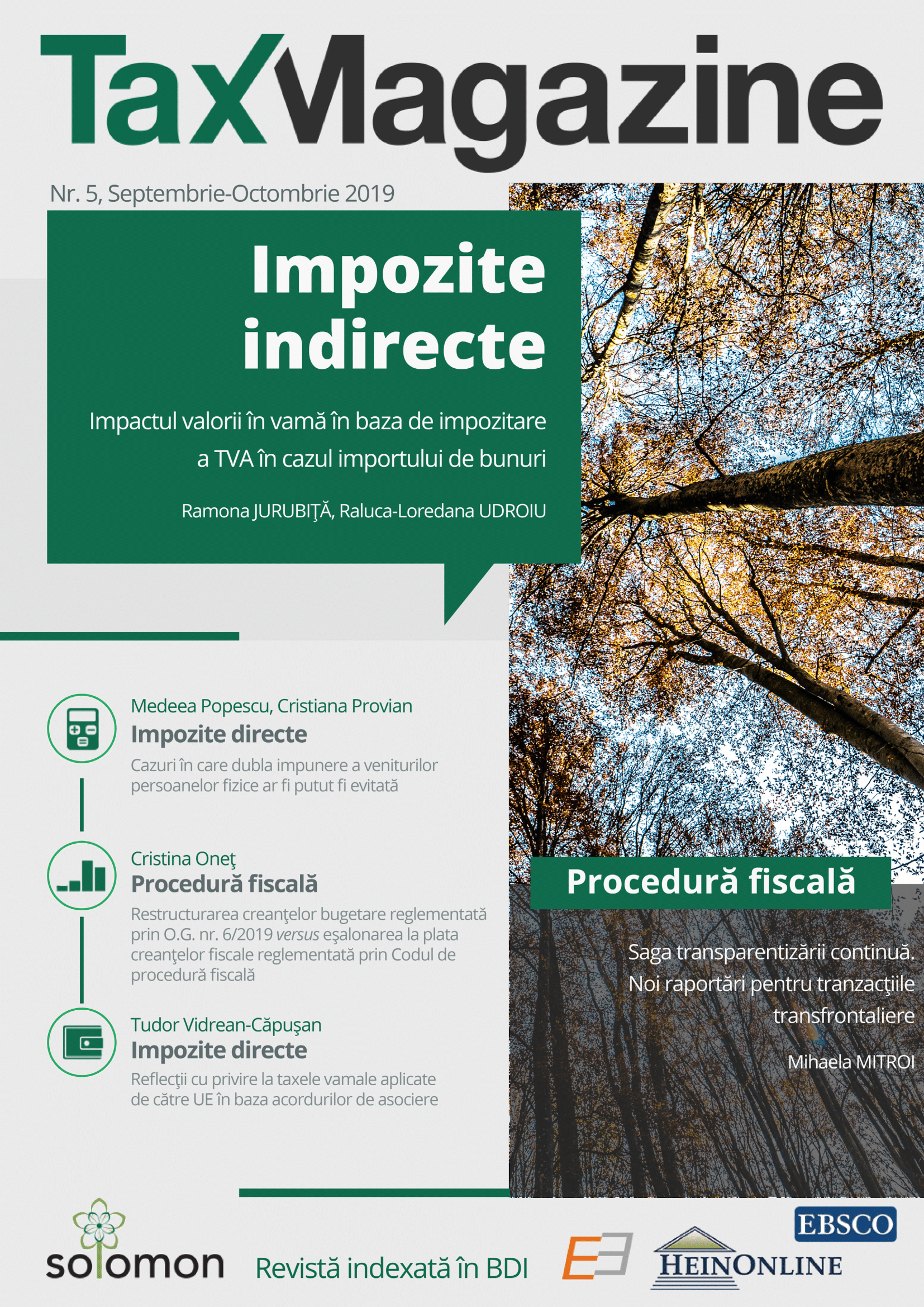
Tax residence represents a topical subject nowadays, especially if we look at the number of migrant workers which is currently increasing. We have described below how the tax residence of an individual is established and the impact it can have on the income received by him/her.
More...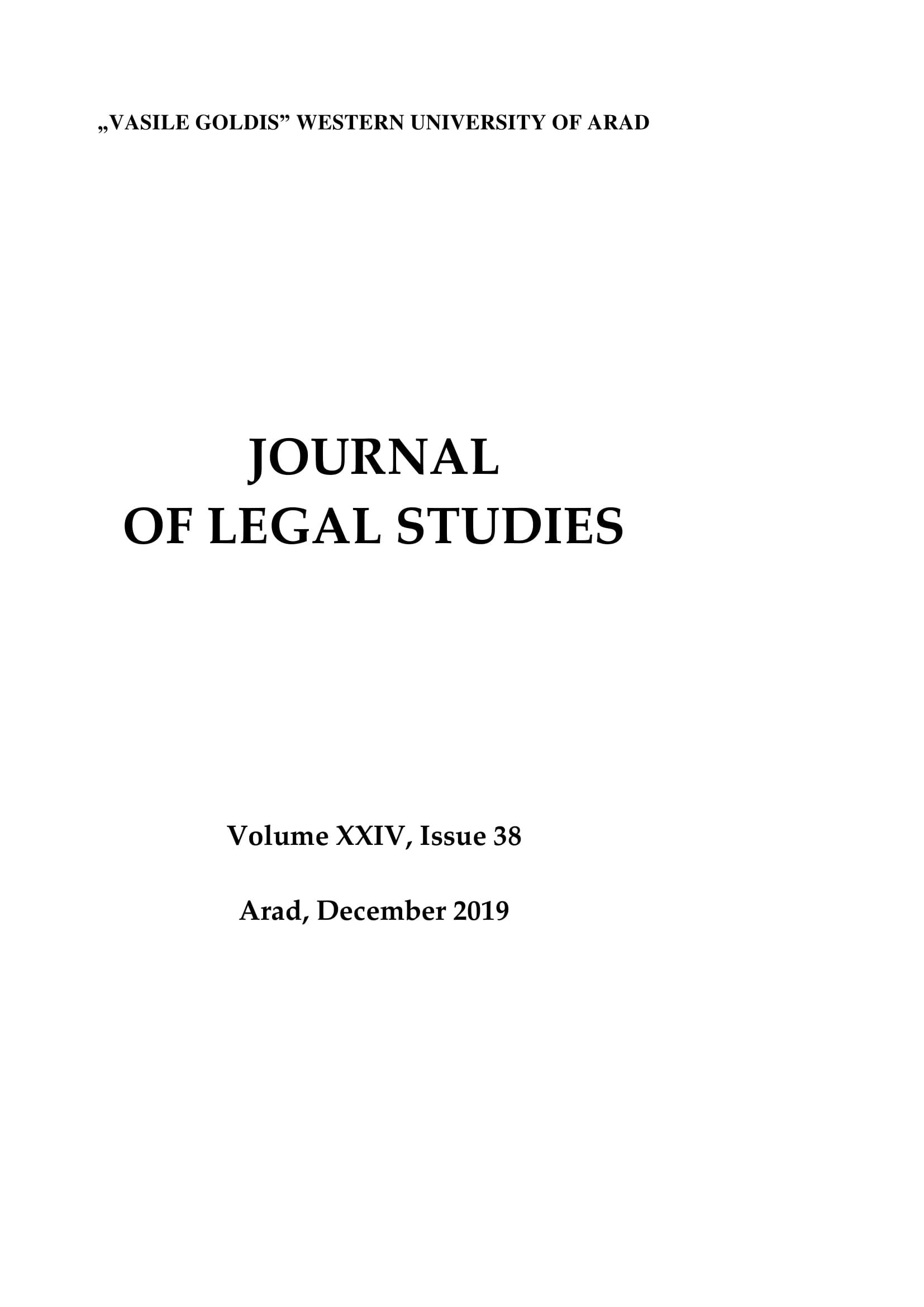
The article presents two cases of the Arad Medico-Legal Department illustrating just a part of the role of the forensic pathologist at the death scene but there are sufficient to fully justify the importance of this investigation as no example can comprise the complexity of the problems and the particularity of each case, nor a statistic can be made. Both cases we found dead at home ad forensically autopsied, but the two of them were distinct in terms of forensic pathologist's request death scene participation. In the first case, the autopsy did not find traumatic lesions, but revealed that the death was due to massive hemoptysis caused by cavernous tuberculosis with subsequent exsanguination, microscopically confirmed. The death was nonviolent. In the second case, the autopsy revealed findings of mechanical asphyxia due to neck compression, both macroscopically ans microscopically. The death was violent. In both cases the forensic expert participation is required at the death -scene. In the first case it allowed the correct interpretation of the traces of the blood found on the site, and in the second case, an onsite research would have properly helped for restoring the death's occurrence. The scene investigation and autopsy provide, together, the basis for an accurate determination of cause and circumstances of death.
More...
Svrha rada je prezentiranje zakonskih rješenja i praktičnih dostignuća u desetogodišnjoj praksi, te primjeni notarijata u pravu privrednih društava Bosne i Hercegovine (dalje: BiH), kao i njihovo kompariranje sa rješenjima zemalja germanskog područja (Njemačkom i Austrijom). U radu su navedeni propisi koji uređuju status privrednih društava u BiH, prikazana je uloga notara u pravu privrednih društava BiH i dati su prijedlozi de lega ferenda kako bi se institut notarijata u BiH bar približio njemačkim i austrijskim praksama notarijata u pravu privrednih društava. Ovo posebno s obzirom na to da su zakoni o notarima u BiH usvojeni pod posebnim utjecajem njemačkog prava, ali su se u praksi ipak pokazale određene manjkavosti koje se reflektuiraju na generalni nivo – nivo države BiH.
More...